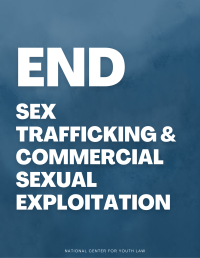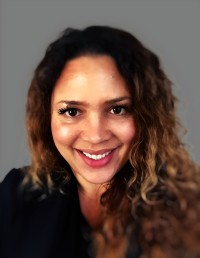Survivors Present To 500 Professionals About Housing, Harm Reduction And More
Ten survivors and lived experience experts shared insights gleaned from their personal and professional experiences during an educational webinar focused on the Commercial Sexual Exploitation of Children (CSEC).
“Supporting Youth: Survivors’ Perspectives on Housing, Harm Reduction, and Youth Engagement” was presented during Human Trafficking Awareness Month in January 2022 by the California CSEC Action Team’s Advisory Board, which is funded by the California Department of Social Services (CDSS) and supported by NCYL and West Coast Children’s Clinic (WCC). The members provided personal experiences, practical skills, and and recommendations to caregivers, policymakers, law enforcement professionals, community members, and service providers who interact and serve youth who have experienced CSE.
More than 500 people attended the live webinar. Attendees provided overwhelmingly positive feedback–noting they found the personal examples used throughout the 90-minute presentation to be particularly helpful, and video of the event continues to be shared and viewed months later.
Shifting culture
The California CSEC Action Team Advisory Board was developed in 2016 in partnership with the National Center for Youth Law. The creation and funding of the Board itself demonstrates a shift in the way the state of California views the importance of centering survivors. Now in its sixth year, the California Department of Social Services continues to recognize the value of lived experience by increasing the funding available to ensure that all relevant guidance, policies, and practices are created in partnership and with the feedback of the Advisory Board.
The Advisory Board has evolved since it was first created, and members continue to take on more leadership roles and drive the substantive agenda of the Board. Specifically, the Board members defined the topics to cover based on needs they are seeing in the field, developed the content, promoted and executed the webinar. The feedback that the Advisory Board received after the webinar made clear that everyone working with youth at risk or experiencing exploitation wants to hear from survivors and learn from their expertise. Survivors leading change and utilizing spaces to raise awareness is a culture shift.
The success of the event, including broad attendance and particularly the desire expressed by attendees to hear more information directly from lived experience experts, demonstrates a growing recognition of the value and importance of centering survivors and lived experience experts.






